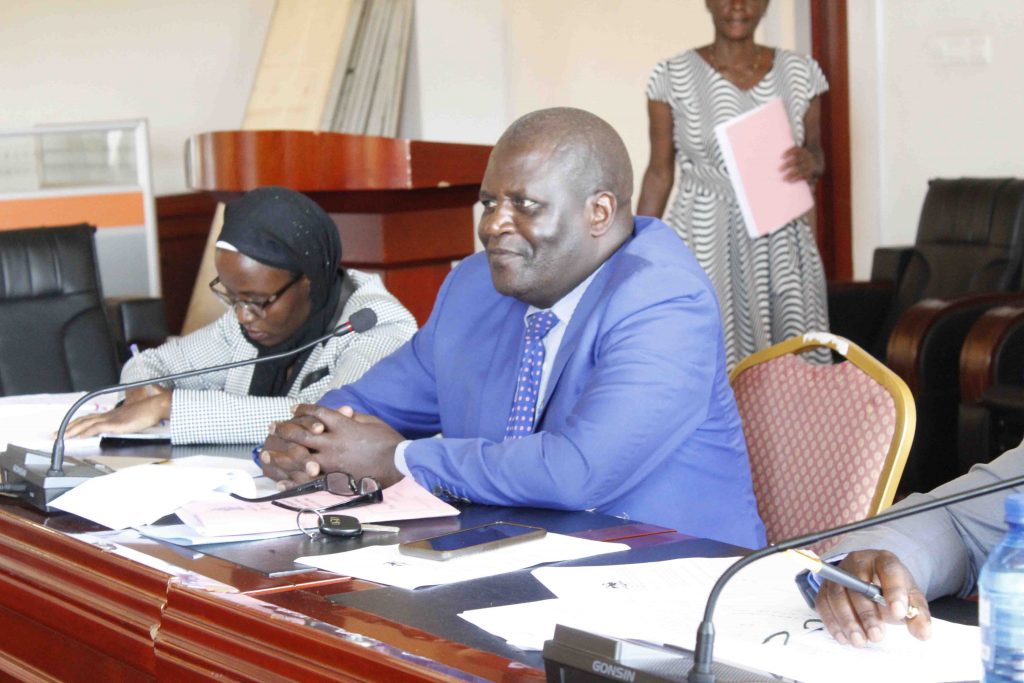
Construction
Malawi Govt. lambasted over Salima-Lilongwe water project delays
January 14, 2021 / Wahard Betha

The Parliamentary Committee on Natural Resources and Climate Change has accused the Ministry of Forestry and Natural Resources and; Lilongwe Water Board (LWB) of not being open on their position on Salima-Lilongwe water project.
Over three years have elapsed since the Government and the awarded contractor Khato Civils started negotiations over the project amidst various controversies.
Chairperson for the Committee Werani Chilenga made the accusation when the committee engaged the Ministry of Forestry and Natural Resources; LWB; Ministry of Finance and; Khato Civils to hear the progress of the project.
Chilenga said the committee suspects that the Ministry and LWB are not being open on the project because their interest is not on the multimillion-dollar project but rather the Diamphwe Water Project.
He said: “As a committee we are recommending that due to scarcity of water in Lilongwe, the project is the best for the city.”
“We are failing to manage the Dzalanyama Forest Reserve. Both Diamphwe and Lilongwe Rivers are coming from Dzalanyama.”
“At the rate deforestation is taking place now, we can do Diamphwe but just few years later we will go back to Lilongwe-Salima project which by then will be too costly.”
Meanwhile, there is fresh controversy on the project as in the original design, Khato proposed the use of ductile iron pipes but following recommendation by the Government to consider reducing the price for the project, the contractor has proposed mild steel pipes which the government is not satisfied with.
The change of the project material has reduced the cost of the project from a tune of $400-million to $315-million.
Mild steel pipe is made of rust corrosion measures while Ductile iron pipes are made of ductile cast iron commonly used for potable water transmission and distribution.
During the meeting, the Ministry of Forestry and Natural Resources admitted that it finished reviewing the technical side of the revised design for the project and handed over to Ministry of Finance for final recommendations.
Director of Economic Affairs in the Ministry of Finance who represented Secretary to the Treasury MacDonald Mwale said the Ministry has not yet started working on the project as they are still waiting for a final financial proposal.
Mwale said negotiations for the project are taking a long time following changing of type of pipes by Khato in the requested design.
“Of course we received the design from the Ministry of Forestry and Natural Resources and we are about to look into it later. We are currently waiting for Khato Civils to submit full financial proposal,” said Mwale.
Khato Civils Group Chief Executive Officer Mongesi Mnyani said firstly they opted for ductile iron pipe after considering factors of purchase, logistics, installation and maintenance.
Mnyani said now the situation has changed following the reduced cost as the mild steel are cheaper than ductile iron.
He also said the outbreak of the novel coronavirus (Covid-19) pandemic has also influenced the change of the pipes considering that logistics to acquire ductile iron will not be easy as initially suggested.
“We understand that the Malawi Government still insists on ductile iron pipes not the mild steel we proposed. But the Government has to know that ductile iron pipes can still hike the cost back to over $400-million which will not satisfy them,” Mnyani said.
The Lilongwe-Salima water project is expected to pump water from Lake Malawi to Lilongwe City, a distance of 120 kilometers.
Government already spent $17-million on the project which will be pumping an estimated 50,000 cubic meters of raw water per day through a 50 centimeter diameter pipeline.
Khato Civils is owned by South African based Malawian business guru Simbi Phiri.
During the presentation of 2020/21 National Fiscal Budget, Finance Minister Felix Mlusu pegged expenditure for the project at K2.2 trillion.































